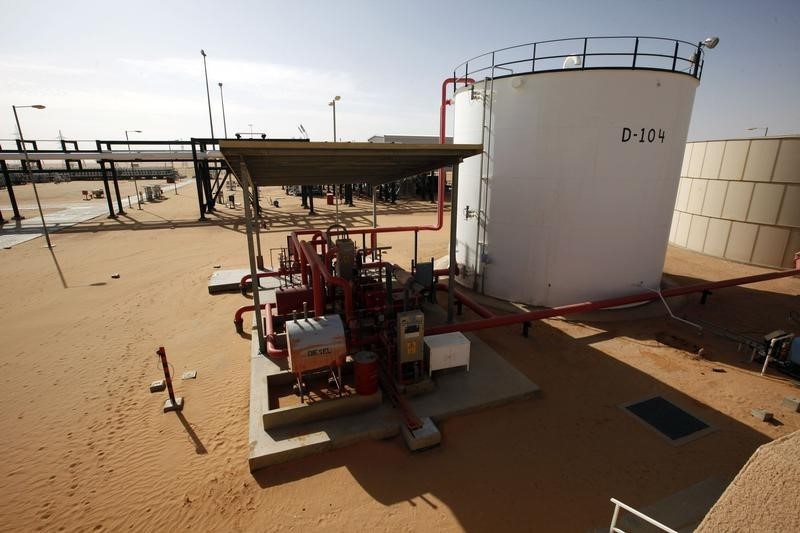US stock futures flat after Wall St drops on Trump tariffs, soft jobs data
* Nigeria's Buhari has 43 cabinet members
* Buhari keeps oil portfolio, appoints new junior oil
minister
* Cabinet faces low growth and widespread insecurity
(Adds details, quotes, analyst, bullet points)
By Felix Onuah
ABUJA, Aug 21 (Reuters) - Nigeria's President Muhammadu
Buhari swore members of his cabinet into office on Wednesday,
assigning a new minister of state for petroleum in Africa's top
producer of crude oil.
Buhari kept the petroleum portfolio for himself, as in his
first term, and appointed Timipre Silva as the junior minister,
who is widely expected to manage the portfolio on a day-to-day
basis.
Silva, a former governor of Bayelsa state in the southern
Niger Delta oil production heartlands, replaces former
ExxonMobil executive Emmanuel Kachikwu who was the country's
main representative at OPEC meetings.
Nigeria, which has Africa's biggest economy, remains heavily
reliant on crude oil sales despite efforts by Buhari to boost
non-oil revenues since he first took office in 2015. Oil
receipts account for about 90% of foreign exchange and low oil
prices helped to push the country into recession in 2016.
The move to assign portfolios comes six months after Buhari
won a presidential election and nearly three months after his
second term began. The time taken to appoint ministers caused
jitters amongst investors and threatened growth prospects.
Zainab Ahmed, who became finance minister in September last
year after her predecessor resigned, retained the position with
additional responsibilities for the budget and national
planning.
The cabinet of 43 ministers faces a long list of challenges
including tepid growth following Nigeria's emergence from
recession in 2017, high unemployment and galloping inflation
that has hit the poorest people in a nation of 190 million
people, most of whom live on less than $2 a day.
And security forces have been stretched as they try to
tackle Islamists waging a decade-long insurgency in the
northeast, banditry in the northwest and clashes between nomadic
herdsmen and farming communities over dwindling arable land in
central states.
"The core objectives of this administration are to improve
security, achieve diversified, inclusive economic growth and
fight corruption," Buhari told his cabinet at the swearing in
ceremony.
The ministry of power, housing and works - created to
address challenges related to the country's ailing electricity
and transport infrastructure when Buhari first took office in
2015 - was broken up.
Babatunde Fashola, a former governor of commercial hub Lagos
state who headed that super ministry in the first term, was
named minister for housing and works.
Sale Mamman, a businessman and former ministry of works
official, was given the power portfolio. His task will be to
tackle a poor electricity supply that holds back everything from
manufacturing to education, while addressing spiralling debts
that have crippled the power sector and held back
investment. "We have seen an exodus of the more capable and technocratic
ministers and in their place there are politically connected
replacements," said Malte Liewerscheidt, vice president at Teneo
Intelligence.
He said some of the new entrants were stalwarts in Buhari's
ruling All Progressives Congress (APC) party, who appear to have
been rewarded for helping him to win February's election, while
others were part of a bid to solidify the party's base in some
parts of the country ahead of elections in 2023.
"There are no real surprises here. The potential for
positive change is rather limited," said Liewerscheidt.
